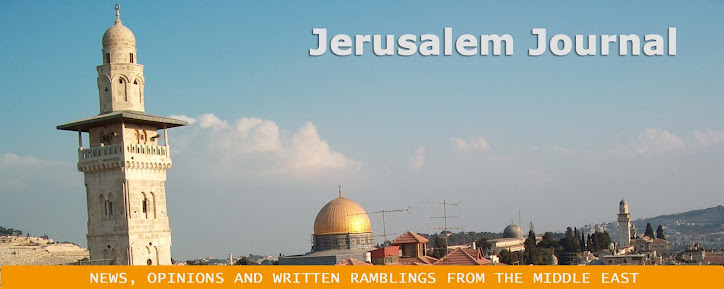Dec 13, 2007
Palestinian Pastor Flees after Death Threats
With the dirt still fresh over the coffin of a Palestinian martyr in Gaza, an Evangelical pastor in Palestinian-ruled Ramallah fears he may be the next target of persecution against Christians and is taking no chances. Isa Bajalia fled to Jerusalem after receiving several threats against his life and being refused protection by Palestinian officials.
The threats underscore the growing intimidation against Christians, particularly Evangelicals, in the Palestinian areas. In October, a Palestinian Bible Society worker in Gaza, Rami Ayyad, was kidnapped and killed by Islamic militants.
“I was told, ‘The same things that happened to Rami in Gaza will happen to you,’” Bajalia recounted. “They said, ‘We’re going to break your arms and legs. We’re going to shoot you in your knee caps.’”
Two men in Ramallah, one of them a low level Palestinian Authority (PA) official, have been attempting to extort land and money from Bajalia. One is a Moslem and the other a nominal Christian. Bajalia brought these threats before the PA where one official said he didn’t have time for him and a police officer said that for $5,000 he could promise protection. Instead, Bajalia left Ramallah for now.
“It made me so cautious that I started to always watch around me and behind me,” he told Israel Today. “I am sure Rami was sitting in the same position as I am now not long ago.”
Moslem hatred of Christians in Palestinian territories has intensified since the Iraq War and the terrorist attacks in the US on Sept. 11th, 2001, Bajalia noted.
“There was always some element of hatred toward Christians, hidden perhaps, but now we are seeing acts of persecution, threats and violence,” he said.
Bajalia, who was born in the US and is an American citizen, moved to Ramallah—where both his parents were born—16 years ago. He brings in humanitarian aid, pastors a church and focuses his work on the Moslem community.
“There is openness among Moslems, much more than we’ve ever seen,” but the radical element of Islam is also active, he said.
Bajalia, 47, was the first of his four brothers and parents to get saved growing up in Birmingham, Ala. and later went on to Rhema Bible Training School in Oklahoma for his seminary degree. His parents were shocked when he decided to go back to the Land they left, but he said it was a calling he couldn’t deny. When Balalia arrived in Ramallah in 1991, it was his first trip to his parents’ homeland.
“I was amazed at how historic, how rustic the appearance of the landscape and housing was,” he said. “I had come from a society where things were always moving forward. Here it was like time was frozen.”
The threats began after visiting doctors and nurses from abroad volunteered at Bajalia’s medical clinic and prayed over some patients. Apparently some of the patients were plants who reported that the outreach was attempting to convert Moslems. The two men harassing Bajalia told him to stop evangelizing and also demanded he give them a plot of land his family owns plus $30,000.
The PA’s lack of response to his case isn’t necessarily because he is a Christian, Bajalia said, but because “I am a nobody on the landscape of society.” He feels the same way about the American consulate which has received his case but has only been in touch with him once with one suggestion: Don’t go back to Ramallah.
Ramallah was once known for its thriving Christian population. Now, of 70,000 residents in the city and its outlying villages, the Christian population has dwindled to just 1 percent. Of that, Bajalia estimates that at most, 400 are Evangelicals.
“You definitely feel like a minority in terms of the numbers,” Bajalia said. “But that’s the type of challenge I like. These are untouched territories in terms of the gospel and it is an opportunity for God’s light to shine through.”
Bajalia has fostered good ties with Messianic pastors in Israel during his time here. He said that his church prays for the nation of Israel and for the Jewish people.
“I believe loyalty to God’s sovereignty is more important than loyalty to a nation,” he said, stressing that he stays out of politics. Bajalia said he sees the suffering on both sides: the struggle with poverty, checkpoints and the security barrier among Palestinians, and Jewish lives torn apart in suicide attacks.
“We hurt when we see Israelis hurt,” he said. “We want to be a part of the healing process.”
Subscribe to:
Posts (Atom)


